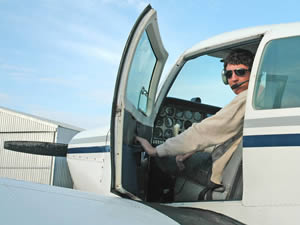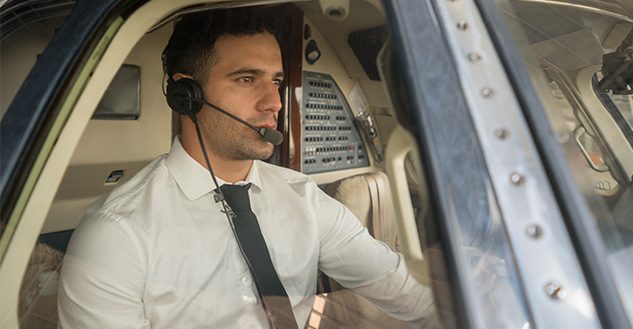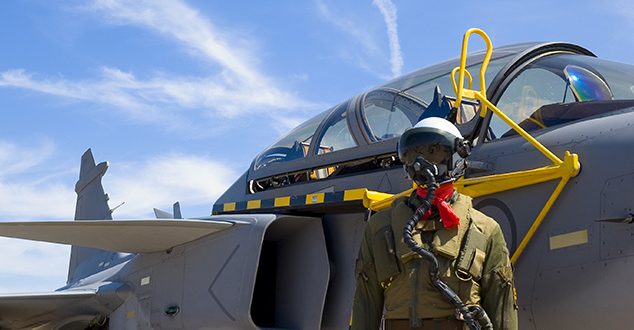Commercial Airline Pilot Training Programs Georgia
Paragon Flight’s commercial airline pilot training programs provide candidates with the environment, custom plan opportunities, and training essentials needed to reach their goals. If your career ambitions point you toward the sky, choose Paragon Flight to guide your way!
 Becoming an airline pilot doesn’t happen overnight. As with any other substantial career with serious responsibilities, airline pilots undergo extensive training and evaluations. Paragon Flight can help you cut through wasted time and help you reach your goals in an expedited fashion.
Becoming an airline pilot doesn’t happen overnight. As with any other substantial career with serious responsibilities, airline pilots undergo extensive training and evaluations. Paragon Flight can help you cut through wasted time and help you reach your goals in an expedited fashion.
Introducing Paragon Flight
- Established in 2006
- Locations in:
- Page Field (FMY) in Fort Myers, FL
- Punta Gorda Airport (PGD) in Punta Gorda, FL
- LaGrange-Callaway Airport (LGC) in LaGrange, GA
- FAA authorizations under Federal Aviation Regulations (FAR):
- Part 61 – flexibility regarding pacing and scheduling
- Part 141 – highly structured curriculum (required for international students, students with government-backed financial aid, and veterans using GI benefits for financing)
- AOPA (Aircraft Owners and Pilots Association) award winners.
Paragon Flight’s Training Fleet
The training fleet at Paragon Flight is well-equipped for all of the training programs that we offer. Each aircraft qualifies as Technically Advanced Aircraft (TAA), equipped with Glass Cockpit technology and advanced avionics. Our fleet includes the Piper PA28 “Pilot” for single-engine flight training and the PA-44 Seminole for multi-engine flight training. We offer the Cirrus SR20 for specialty training, which is useful for high-performance endorsements, primary training, transition/differences training, and rentals. The ALSIM AL172 Simulator allows students to remain on Terra firma while logging flight hours and perfecting their skills.
The fleet that we offer is fully prepared to fulfill all of the demands of the training that we offer. You won’t be pressed to go elsewhere for practical training experiences.
Training Required for Work as a Commercial Airline Pilot
If you plan to work as an airline pilot and you’re beginning with zero experience, your training will start by earning a Private Pilot License (PPL). You then need to add an Instrument Flight Rating (IFR) to this license, followed by a Commercial License, Single Engine and Multi-Engine (CSEL/CMEL) to qualify as a commercially licensed pilot. As a perfect entry point into the aviation occupation, credentials as a Certified Flight Instructor (CFI) will allow you to continue perfecting your skills, accumulating flight hours, and sharing your passion while making a living.
For ambitious pilots with full-time availability, all of the above credentials can be earned through the P3 Professional Pilot Program. If you don’t have full-time availability, you can pursue these credentials piecemeal through a custom program engineered by our staff. Contact us for a consultation and a program designed to meet your circumstances appropriately.
The next steps to follow for commercial pilots include earning an Air Transport Pilot (ATP) certification and logging 1,500 flight hours to apply as an airline pilot.
Financing the Future
An airline pilot is an impressively lucrative career, but the education required of you can be pricey. Paragon Flight works to cut down on these expenses by providing accelerated courses, focusing on quality training, and helping pilot candidates find appropriate financial resources. Whether you qualify for aviation scholarships, traditional government-backed student loans, grants, veterans benefits, or personal lending or savings, rely on the team at Paragon Flight to help you find and secure an appropriate packaging of financing.
Click here or call (706) 903-9337 if you’re ready to pursue commercial airline pilot training programs with Paragon Flight in LaGrange, Georgia.




